Welcome to Smugglivus 2013! Throughout this month, we will have daily guests – authors and bloggers alike – looking back at their favorite reads of 2013, and looking forward to events and upcoming books in 2014.
Who: The G, one of the voices behind the righteously nerdy speculative fiction blog Nerds of a Feather, Flock Together.
Please give it up for The G!
First off, let me thank Ana and Thea for asking me to participate in this year’s Smugglivus event. I’ve long been a fan of this site, and am thrilled to be writing alongside so many authors and bloggers whom I deeply respect, and whose “best of 2013” lists have now transformed into a rather large “to-read” list for me. However, I’m going to take a slightly different approach to my contribution: rather than review the best books I read in 2013 (and there were many), I thought I might look at how some of these books intersect with a theme of great critical interest to me and contention within fandom: gritty or “grimdark” fantasy.
I began 2013 by writing a piece that was intended as an exploration of both why I’m attracted to the style and why I think it’s important for grit to do something other than just present a bunch of violence to shock and titillate the audience. It was not intended as an answer to the question of whether grit/grimdarkness is “good” for fantasy.[1. Written by my co-contributor Jemmy, though I also read this book in 2013 and agree with most of what he wrote in his piece.]
Let me state categorically that I think this is the wrong question. Grit can be good—in fact, as I noted in a recent satirical piece, grit can be very good. Certain elements or manifestations of grit, on the other hand, are categorically bad—like pornographic torture and the seemingly endless tide of triggery rape scenes. But when done right, grit can be compelling, and as it happens I’ve found a decent number of gritty fantasy books that I consider to be very, very good.
With that in mind, the better question, in my opinion, is to ask: does this grit have a purpose beyond the cheap thrill? Is it deployed in a sophisticated and intelligent manner, in a way that makes you rethink or recontextualize elements of the world we live in, or is it just another vapid adolescent male power fantasy?
Knowing Your Grit From Your Grimdark
Gritty literature can be reframed as “dark realism.” A gritty book, then, is one that lingers on the rough and difficult side of life, and often more narrowly on the violent and sinister in human psychology, social interaction and so forth. Some people use the term “grimdark” as a synonym for grit, while others use it as an exclusively pejorative stand-in. The term, however, has a more specific meaning.
Imported into fantasy from Warhammer 40k game culture, grimdark narrowly refers to a totalizing manifestation of grit. Gritty worlds are rough and tumble places where bad things can easily happen, but there’s always the understanding that, somewhere at least, things aren’t that bad. Grimdark worlds, by contrast, are irreparably violent and unavoidably sinister—so much that they can easily slide into absurdity.
Now I’m as guilty as anyone else of playing fast and loose with these terms, but this is, I think, an important distinction to make: grit is inherently limited and situational; grimdark is totalizing and manifest everywhere.
Slide into Schlocksville
Neither grit nor grimdark is unique to fantasy—you can find historical examples in literary fiction, independent film, heavy metal, horror, fine art and so forth. And these examples suggest that gritty movements follow a parabolic trajectory: from revolutionary to institutional to passé.
Gritty movements begin as reactions to the staid and overly safe status quo, whether it’s Tolkeinic fantasy, cozy mysteries or abstract expressionist painting. They are, in the first phase, exciting transgressions of boundaries and convention. They breathe new life into boring forms, and often feel more “realistic” because they do not flinch from the horrors of life (and of which there are many).
Yet as more and more people gravitate towards gritty art, the grit that made the original stuff revolutionary becomes an expectation. It is now no longer the avant-garde but the institutional center of the art form—the new status quo. And then a problem emerges: what once shocked us no longer has the same impact. (Think death of Ned Stark, a touchstone moment for many fantasy readers, versus apparent death of Jon Snow. Even putting aside the ambiguity of the latter, do you even care at this point?)
Seeking to replicate the visceral thrill and impact of the revolutionary phase, both producers and consumers begin to demand more grit. Grimdark, which previously was just an extremity of the gritty movement, itself becomes the status quo. And as levels of grit rise and envelop everything in their path, the probability of a slide into cheap shock n’ schlock rises as well. Taken together, these factors conspire to the gritty movement of its power, reducing it to cartoonish self-parody and rendering it passé. In Elizabeth Bear’s words:
The least self-reflective of the grimdark seems to me to be a little too busy wallowing in splatter and gratuitousness—violence, betrayal, rapine, raping, pillaging, cannibalism, torture… pick three… or four… as if those things were an end to themselves. Admittedly, for some readers, they are. They satisfy the itch those readers want scratched. They conform to a worldview that presents itself as sophisticated, but in reality is just as one-sided and uncomfortable with challenges as the sort of novel where, as Roger Zelazny wrote in one of my favorite gritty fantasy series of all time, “Good triumphs over evil and hero beds heroine.
Beyond the Parabola
The parabolic model suggests that gritty art movements are likely to sputter out after passing an all-important tipping-point, though the actual moment is usually only apparent in hindsight. Regardless, the expectation is that grittiness won’t be the selling point it currently is. But this doesn’t necessarily herald the end of the gritty fantasy; rather, we may instead see more authors employ grit as more tool than default mode. Even grimdark, that relentless and extreme manifestation of grit, can be utilized in this way.
Of course I’m not the only one to think along these lines—bestselling fantasy author Joe Abercrombie noted much the same thing in an essay written in response to a number of critical pieces on grimdark (mine included). But any tool is useless unless you give it something specific to do.
This is what I want to see more of—grit that does something, that says something other than “the world is grim and dark.” Four novels I read in 2013 in particular exemplify the purposive approach to grit and/or grimdark, and interestingly, they all do it in different ways.
1. The Grimdark Parable: Cook, Glen. Chronicles of the Black Company
I think we can all agree that the real world, if not exactly an unending horror show, has at least contained horror shows for all of recorded history. The Vietnam War was one such calamity—certainly for the Vietnamese, who had to endure near constant warfare and multiple foreign invasions (France, US and China) over three decades, but also for the American conscripts sent off to fight a war they didn’t choose and didn’t really understand the point of either.[2. At least, the ones who weren’t doing stuff like My Lai.]
The experience of Vietnam permeates the Chronicles of the Black Company, reflecting Cook’s time as a soldier in that war. The Black Company mercenaries are keenly aware they fight in defense of power and privilege, while the other side can rightfully lay claim to ownership of the just cause. Yet they also observe that, on the battlefield, there is little one side might do that the other would not also do if given the opportunity. Under such circumstances, there are few options for the mercenaries beyond just trying to make it to the end of their contract alive.
Like Tim O’Brien’s The Things They Carried, the real story here centers on how the fighting men and women relate to each other, and to the nightmare of intimate warfare. The result is feverish, almost psychedelic at times, the grim darkness amplified to the extent that almost becomes comical—until, that is, it all crashes down again and you are left with yet another view of how desolate and horrible warfare truly can be.
2. Grit as Opening Gambit: Bear, Elizabeth. Range of Ghosts
Fantasy series used to always start with tropey village shenanigans, where the pig farmer hero tends his pigs, flirts with the local pretty girl and gets life lessons from a wise old villager until, a chapter or two later, something really bad happens and that bucolic world is shattered—forever! Only now we’re all sick and tired of that kind of stuff (with good reason). So what to do?
One way to draw your reader in is with a gripping bit of violence, and Elizabeth Bear’s masterful Range of Ghosts shows just how effective that strategy can be. The book starts with the hero, Re Timur, waking in an endless field of rotting corpses, his throat slashed, his brother dead and his cause lost. This disturbing, surreal scene sets the stage for the book (and series) nicely, pulls you in and never lets go—even as Bear tones down the grit as she goes along. It doesn’t hurt that Bear writes beautifully, of course, but what I appreciated most about this was how grit, in Bear’s hands, is both purposive and restrained—just gritty enough, and at the right moments, but not excessively or relentlessly so.
3. The Grit of Everyday Life under Extraordinary Circumstances: Wexler, Django. The Thousand Names
The Thousand Names is a flintlock fantasy, one focused on a group of soldiers stuck on hardship assignment and who have been tasked with pacifying a rebellion in a colonial province. There are many things to like about this book, but chief among them was Wexler’s focus on the daily lives in soldiers in the age of muskets and cannons. And you know what? It sucked! Not in the “endless raping and pillaging” way, but in an “I’m hungry, have no food, have to march 10 km in sole-less boots, haven’t bathed in weeks and am beginning to wonder if our commander is insane” kind of way. That’s gritty, but a different kind of gritty—a realistic and historically accurate and super-interesting kind of gritty.
4. Grit as Subversion of Archetypes: Sapkowski, Andrzej. Time of Contempt
Sapkowski’s Witcher Cycle is one of the most complex and literary fantasy series ever written, one that defies the usual boxes we dump our fantasy books into. Is it “traditional” fantasy, because it has elves, dwarves, unicorns and a desperate fight against “evil?” Or is it grimdark fantasy because nearly all the potential “good guys” are despicable themselves and is, ultimately, reflects a view of human nature that is every bit as grim and dark as those devised by Glen Cook, Joe Abercrombie or George R. R. Martin? And how does this book fit into widely held (and deeply problematic) assumptions that fantasy novels can or should be classified by gender-orientation, whether “male” (i.e. violent) or “female” (i.e. romantic)? I ask because Time of Contempt is all of these things at the same time.
Despite a relatively high grit factor, though, Sapkowski is not writing a grimdark novel so much as using grit and grimdarkness as a tool with which to highlight the underlying hypocrisies of traditional fantasy, as if to say “this is what it would really be like to live in a world full of the stuff Tolkein, Lewis and other adapted from medieval literature.”
This mode of critique reflects, in part, the zeitgeist of the early 1990s, when Sapkowski wrote the Polish originals. It was a time of transition, if nothing else. And if Tad Williams’ Memory, Sorrow, Thorn was the swansong for neo-Tolkeinic fantasy, and A Game of Thrones sounded its death knell, then Sapkowski’s Witcher Cycle represents its most emphatic and total deconstruction.
Of course, it may not be possible to do this kind of thing anymore, given how emphatically the genre has moved away from its Tolkeinic roots (and not only in the direction of grimdark, but also towards the new sword & sorcery, romantic fantasy, urban/contemporary fantasy and so forth). But considering the fact that we’re only getting Sapkowski in English two decades after he wrote the originals, it’s worth noting how well Sapkowski’s sophisticated use of grit as a tool of critique holds up today. I don’t know if I’ve ever read a better fantasy novel, or if I ever will.
Concluding Thoughts
All of these books exemplify the grit-as-tool-in-the-toolbox approach, in which all the grim darkness has purpose. Granted, “purpose” is to a large degree in the eyes of the beholder, but what is criticism if not the attempt to turn opinion into persuasive argument?
To that end, I’d argue that grit works best when it helps authors capture a range of human experience and motivations neglected by heroic fantasy. Gritty fantasy can problematize assumptions while presenting a moral grayscale that better reflects the historical record. Adult humans, after all, are complex animals molded not only by instinct and other biological imperatives, but also by social interactions, personal histories and other experiences—all of which should call into question the archetypes of “good” and “evil” that populate traditional fantasy. Ever wonder how the Founding Fathers of the United States could write the world’s first egalitarian constitution, but include the three-fifths compromise within its text? Or what about Ghengis Khan, a horrifically violent war-monger who might seem like a classic villain, except that he supported meritocracy, didn’t torture as much as his contemporaries and was far more tolerant of religious and ethnic differences than his rivals in Europe, China or the Middle East? Sure there are Hitlers and Mother Theresas, but most figures in human history don’t solely populate the ends of the moral spectrum. Thus the notion that characters, especially those in positions of power, should not simplistically conform to “good” and “evil” archetypes is an unambiguously positive development in fantasy fiction.
Gritty fantasy is much less interesting, though, when all we get in its place is an equally unreflective slab of grim darkness. It’s far, far better to produce a powerful and moving slice of grit, like The Wire than a cheap, gratuitous and nauseating one, like The Cook, the Thief, his Wife and her Lover. That’s the bottom line for me: if grit is one tool in the writer’s arsenal, then I want to feel as if the writer is choosing the right tool for the job at hand, and knows how to use it as well. 2013 was, thankfully, a year when I read more of the former than the latter.
Thanks, The G!



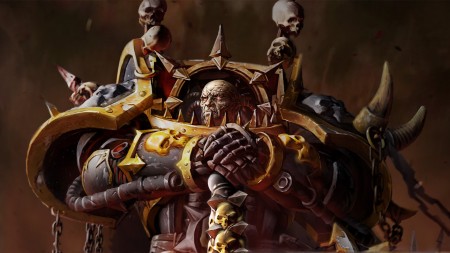
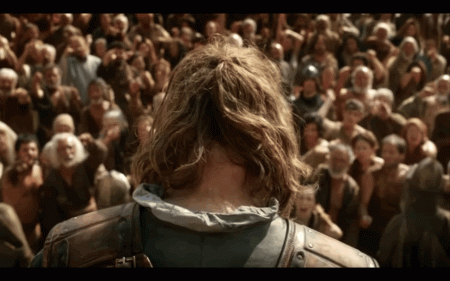
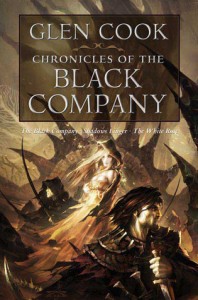
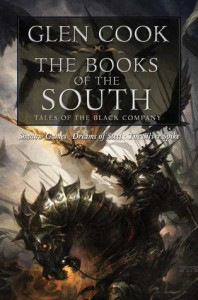
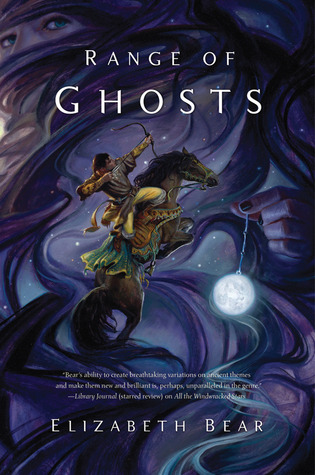
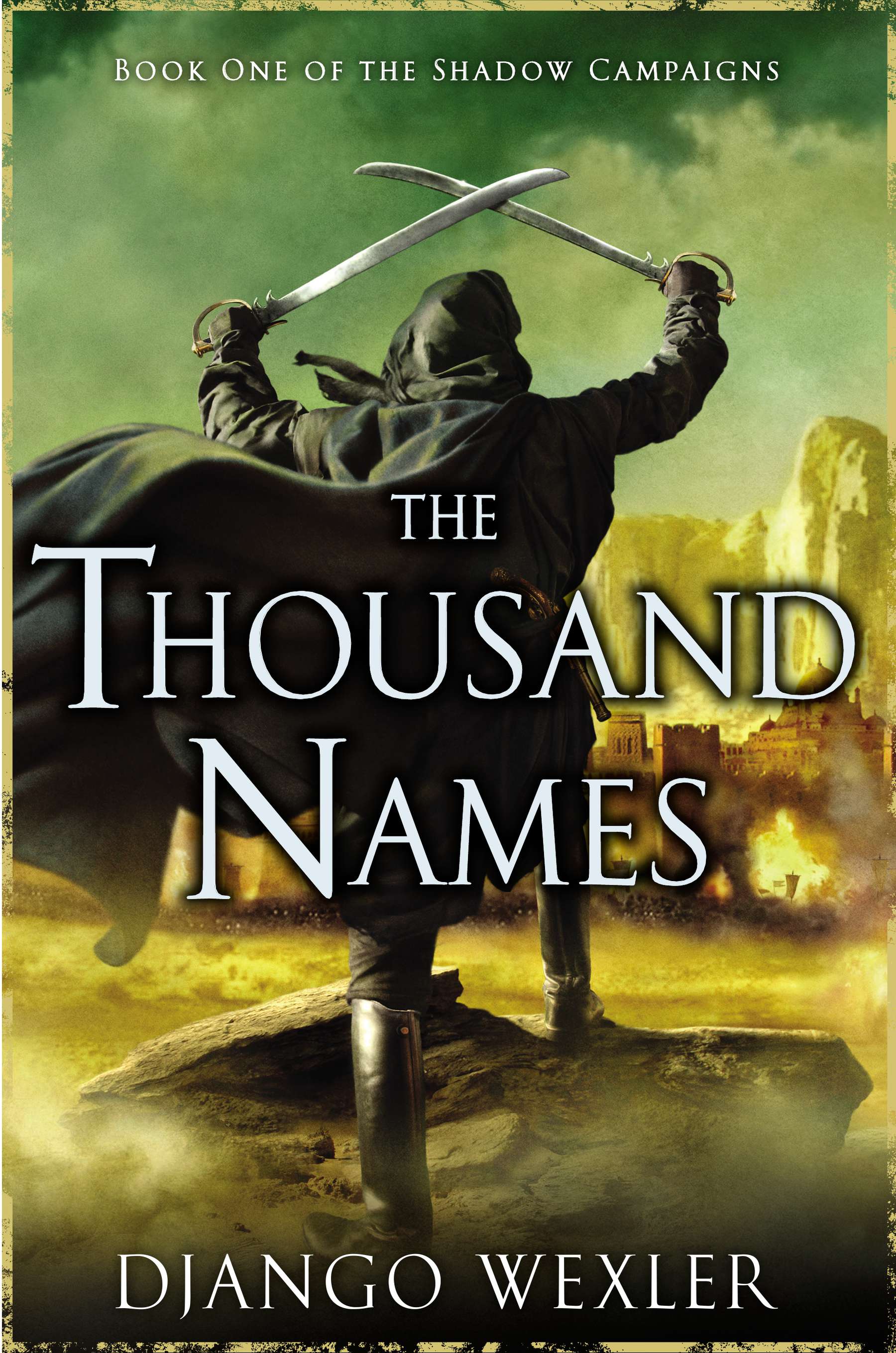
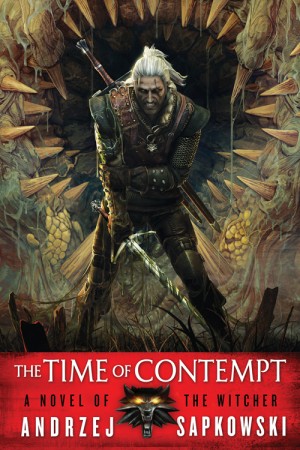









2 Comments
Hannah H
December 21, 2013 at 11:50 pmI think the real litmus test for “grimdark” vs. “gritty” is whether the terrible things that happen onscreen have legitimate, long-term and realistic impact on a the well-rounded character that they happen to. The absolute worst way of making a novel dark (for me at least) is ignoring or trivializing the events after they’ve worn out their initial shock value. The most common offender that I’ve seen is rape, where the event is used as a catalyst for the plot. Often, the effects are completely ignored, and the (usually female) victim doesn’t get a voice regarding her recovery and lack thereof.
Last year, I read Sarah Monette’s Melusine. I looked up some reviews of it later in order to find out other people’s reaction, and found one that criticized its use of rape. I did not agree with the review, but I didn’t realize why not until I read Joshua C. Cohen’s Leverage. The two books are not very similar, but they each have very talented writers and a very similar violent scene. The difference is, in Melusine, the victim is a main character, and the rest of the book is focused on developing him. There’s not a magical fix for his trauma, but he’s much more than what happened to him. In the second book, the victim is barely a character- he’s a plot device. He motivates the main characters to act, and is only defined by what his attackers did to him.
I realize darkness can make an incredibly powerful story, even with this recent glut. But there needs to be a focus on the repercussions to the people involved in order to make it work. That’s what the folks who defend darkness as a movement as realism don’t seem to get- it’s not realistic if it’s not long-term. If there isn’t a character with a voice involved, or if there’s a magical healing process soon after, or even if the people involved die in two pages, than the writers are not writing the scene in order to be realistic. They’re writing it for the shock value.
Interview with Nerds of a Feather | SCy-Fy: the blog of S. C. Flynn
May 16, 2015 at 8:32 am[…] explorations of causes and consequences of violence. I’ve refined the argument two times since (here and here), but that one made the biggest splash. Some people weren’t very happy with that either, […]